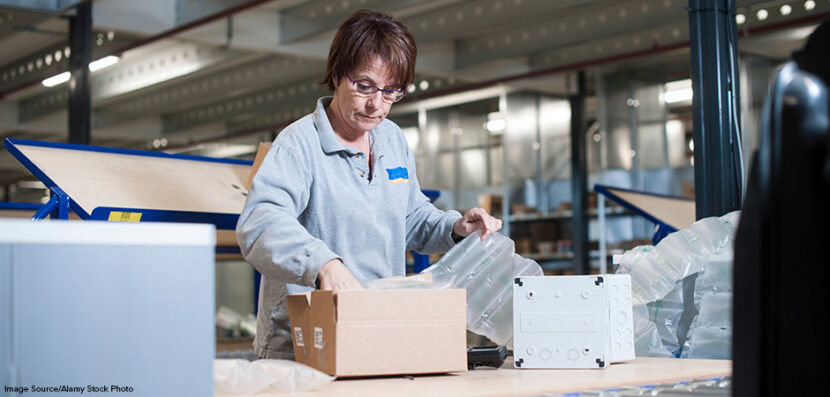- Current Events Nebraska Rejects Winner-Take-All Proposal
- Citizenship Voting Under Age 18
- Citizenship Citizenship in Action
- Democratic Party Biden’s and Trump’s Recent Primary Results
- Elections Trump and Biden Win South Carolina and Michigan Primaries
- Democratic Party Trump and Biden Win Big in Early February Contests

The Reopening Debate
It seems like a lifetime ago that we were able to eat at a restaurant, shop at the mall, check out a book from the library, or get a haircut. If you’re like a lot of people, you might be feeling eager to get things back to “normal” as soon as possible. But is that a good idea? Across the country, leaders are trying to find a balance between keeping people safe, and getting the economy up and moving again. Here, Election Central takes a closer look at the reopening debate.
What About the Workers?
As a consumer, you have the ability to choose whether or not you will visit a business once it reopens. But employees of the business don’t have that choice. Once their employer makes the decision that the business will reopen, employees will have to resume their employment tasks–or face possible job loss. This means that often, workers will have to choose between being able to pay their bills and feed their families, and potentially exposing themselves to the deadly coronavirus. Furthermore, many people who work in service industries, such as restaurants, may not have health insurance to help them pay for treatment if they do become infected.
To make matters even worse: up until now, furloughed employees have been able to receive unemployment benefits from the government while they are out of work. But if their business reopens and they decide they don’t want to go back to work, they will lose those benefits. That’s because workers aren’t eligible for unemployment benefits if they are offered a job but turn it down. This effectively forces people back to work, whether experts have deemed it safe or not.
Safety vs. Work?
This situation is problematic for a number of reasons. First, some business owners don’t necessarily conduct the day-to-day operations of their business. That means they personally won’t be at risk if they decide to reopen. And of course, they want to make money, which they can’t do while their business is closed. So the decision to reopen will likely be made for economic reasons, not safety ones. Second, because schools and daycare centers remain closed, working parents may have tremendous difficulty figuring out childcare for their children if they go back to work. Third, workers with pre-existing health conditions that make them more vulnerable to becoming sick–such as those with asthma or a heart condition–may literally be risking their lives in order to return to their jobs.
According to the U.S. Department of Labor, a person can refuse to return to work and still receive unemployment benefits if they fulfill one of the following conditions:
- diagnosed with COVID-19;
- unable to provide childcare; or
- caring for a family member with COVID-19.
But just wanting to avoid possible exposure to the virus is not considered a good enough reason to refuse to return to work.
Georgia Takes the Lead
Georgia’s decision to reopen–one of the first states to do so–is especially controversial. Georgia has a unique system in place: instead of employees directly registering for unemployment benefits, their employers do it for them. That means that if you can convince your employer that you have a good enough reason, he or she might still apply for unemployment benefits on your behalf. But if you can’t work something out with your employer, your options are limited.
Right now, Georgia has processed nearly 1.1 million unemployment claims, and as a result, there’s the concern that there might not be enough money to go around for all of the state’s workers seeking financial help. Georgia also has a reputation for being strict with its benefits, awarding them to only 14 percent of applicants (compared to about 50 percent in other states). So far, Georgia has reported about 25,000 confirmed coronavirus cases, with over a thousand confirmed deaths as a result.


